
JOURNAL OF OCEANOGRAPHY
Scope & Guideline
Fostering Interdisciplinary Insights in Oceanography
Introduction
Aims and Scopes
- Marine Ecosystems and Biodiversity:
The journal explores the diversity and dynamics of marine organisms, their ecological interactions, and responses to environmental changes, particularly in relation to phytoplankton, zooplankton, and fish populations. - Ocean Circulation and Dynamics:
Research on the physical processes governing ocean circulation, including currents, tides, and mixing, is a core theme, with an emphasis on how these processes influence climate and marine ecosystems. - Climate Change and Ocean Variability:
The journal addresses the impacts of climate change on ocean systems, including studies on sea surface temperature anomalies, ocean acidification, and changes in marine heatwaves. - Biogeochemical Cycles and Nutrient Dynamics:
Investigations into nutrient cycling, particularly in relation to primary productivity and the impacts of anthropogenic factors such as eutrophication and pollution, are significant areas of focus. - Technological Advances in Oceanography:
The journal highlights innovative methodologies and technologies used in oceanographic research, including remote sensing, modeling approaches, and observational techniques.
Trending and Emerging
- Impact of Climate Change on Marine Systems:
There is a notable increase in studies investigating the effects of climate change, such as marine heatwaves, ocean acidification, and shifts in species distributions. - Microbial Ecology and Biogeochemistry:
Research on the role of microorganisms in marine ecosystems and their influence on biogeochemical cycles has gained traction, highlighting their importance in nutrient dynamics and ecosystem health. - Integrative Approaches in Oceanography:
Emerging interdisciplinary studies that combine physical, chemical, and biological oceanography are on the rise, reflecting a holistic approach to understanding ocean systems. - Technological Innovations in Ocean Monitoring:
The use of advanced technologies, including autonomous underwater vehicles and satellite remote sensing, to monitor and model oceanographic processes is increasingly prominent. - Ecosystem Responses to Anthropogenic Influences:
Emerging research focuses on how human activities, such as urbanization and pollution, affect coastal ecosystems, emphasizing the need for sustainable management practices.
Declining or Waning
- Historical Oceanographic Trends:
Research focused on historical oceanographic data and long-term trends has decreased, possibly due to the increasing emphasis on contemporary issues related to climate change and immediate environmental impacts. - Traditional Marine Resource Management:
Studies centered on conventional fisheries management and resource exploitation have waned, likely overshadowed by broader ecological and sustainability concerns. - Geological Oceanography:
Topics related to geological aspects of oceanography, such as sedimentology and marine geology, appear to have decreased in prominence compared to biological and physical oceanography.
Similar Journals

BULLETIN OF MARINE SCIENCE
Exploring the depths of oceanic research.BULLETIN OF MARINE SCIENCE, published by Rosenstiel School of Marine and Atmospheric Science, is a prominent journal dedicated to advancing the field of marine science through scholarly research and peer-reviewed articles. With an ISSN of 0007-4977 and an E-ISSN of 1553-6955, this journal has been contributing to significant scientific discourse since its inception in 1973. Covering a wide spectrum of topics in aquatic sciences and oceanography, it has maintained a respectable position in the academic community, as evidenced by its Q3 ranking in both categories for 2023. Although currently not an open-access journal, it provides essential access to groundbreaking research that informs marine conservation, ecological studies, and atmospheric sciences. Situated in the United States at 4600 Rickenbacker Causeway, Miami, FL 33149, the journal serves as a vital resource for researchers, professionals, and students seeking to engage with the latest findings in marine science and foster a deeper understanding of our oceans.
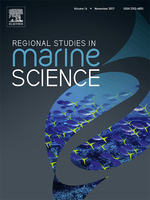
Regional Studies in Marine Science
Charting New Waters in Marine Ecosystem ResearchRegional Studies in Marine Science, published by Elsevier, is a leading academic journal dedicated to advancing the understanding of marine ecosystems and their regional dynamics since its inception in 2015. With an ISSN of 2352-4855, this journal is indexed in Scopus and has achieved impressive ranking quartiles, notably Q2 in categories like Animal Science and Zoology, and Ecology, showcasing its relevance and impact in these fields. As of 2023, it ranks in the 79th percentile for Animal Science and Zoology, reflecting its significant contribution to academic discourse. While the journal operates under a traditional access model, its rigorous peer-review process ensures the publication of high-quality research that is crucial for understanding ecological interactions and fostering sustainable practices within marine environments. Researchers, professionals, and students alike will find this journal an invaluable resource for the latest findings and advancements in marine science, as it strives to bridge the gap between research and practical application at regional and global levels.

THALASSAS
Advancing Marine Science Through Rigorous ResearchTHALASSAS is a prominent academic journal specializing in the fields of Aquatic Science and Oceanography, published by Springer International Publishing AG. Established in 2005 and running through 2024, this journal serves as a vital platform for sharing groundbreaking research and innovative findings related to the marine environment and its ecosystems. With an ISSN of 0212-5919 and an E-ISSN of 2366-1674, THALASSAS is indexed in Scopus and currently holds a Q3 classification in both Aquatic Science and Oceanography for 2023, reflecting its relevance and contribution to these scientific disciplines. Although it does not follow an Open Access model, THALASSAS offers valuable insights for researchers, professionals, and students interested in sustainable ocean management and aquatic biodiversity. Its rigorous peer-review process ensures that published articles meet the highest standards of academic quality, fostering a deeper understanding of marine sciences and addressing critical issues facing aquatic systems today.

Ocean Science
Advancing Research in Oceanography and PaleontologyOcean Science, published by COPERNICUS GESELLSCHAFT MBH, stands as a premier Open Access journal in the fields of Oceanography and Paleontology, with a commendable impact factor that highlights its influence in the scientific community. Since its inception in 2005, Ocean Science has provided a vital platform for the dissemination of innovative research and discoveries, boasting prestigious rankings of Q1 in both Oceanography and Paleontology categories as of 2023, along with impressive Scopus rankings (7th in Paleontology and 28th in Oceanography). Based in Göttingen, Germany, the journal's commitment to open access ensures that groundbreaking research is readily available to a global audience, fostering knowledge sharing and collaboration among academics, professionals, and students alike. As it converges towards its 20th anniversary in 2024, Ocean Science continues to be an essential resource for those dedicated to advancing our understanding of the marine environment and its geological history.

Ocean Science Journal
Charting New Waters in Ocean ScienceOcean Science Journal, published by the Korea Institute of Ocean Science and Technology (KIOST), is a pivotal resource for scholars and practitioners in the field of oceanography. With the ISSN 1738-5261 and E-ISSN 2005-7172, this journal presents cutting-edge research from 2006 to 2024, bridging fundamental and applied ocean sciences. Based in South Korea, with its headquarters located in Busan, the journal has achieved a commendable Scopus rank of #72 out of 145 in the domain of Earth and Planetary Sciences, placing it in the 50th percentile among peer publications. Classified in the Q3 category of the 2023 Oceanography rankings, Ocean Science Journal offers a platform for innovative studies that advance understanding of marine environments and promote sustainable ocean practices. While it does not operate under an open access model, readers and contributors can expect high-quality, peer-reviewed material that addresses pressing oceanic challenges and developments. This journal serves as an essential tool for researchers, professionals, and students committed to fostering marine science and ocean technology.
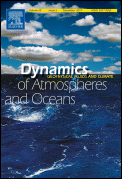
DYNAMICS OF ATMOSPHERES AND OCEANS
Illuminating Climate Change Through ResearchDYNAMICS OF ATMOSPHERES AND OCEANS, published by Elsevier, is a renowned journal that has established itself as a vital resource in the fields of atmospheric science, oceanography, and geology. With a rich publication history stretching from 1976 to 2024, this journal provides a platform for high-quality research that addresses the complex interactions between the atmosphere and oceans, which are critical to understanding climate change and environmental systems. It enjoys a respectable impact factor and a reputable position within its category quartiles, specifically noted as Q2 in critical domains such as Computers in Earth Sciences and Oceanography. Researchers and professionals benefit from its indexed coverage, featuring a Scopus ranking that places it among the leading journals in its categories. Although it is not an open-access journal, readers can access its cutting-edge articles through institutional subscriptions or individual purchases. The journal aims to foster cross-disciplinary dialogue and innovation by publishing original research, reviews, and insightful commentary, making it a cornerstone for scholars, students, and practitioners committed to advancing knowledge in the dynamic interplay of Earth's atmospheric and oceanic systems.

TELLUS SERIES A-DYNAMIC METEOROLOGY AND OCEANOGRAPHY
Advancing Knowledge in Atmospheric Science and OceanographyTELLUS SERIES A-DYNAMIC METEOROLOGY AND OCEANOGRAPHY, published by Stockholm University Press, is a prestigious open-access journal that has been at the forefront of research in the fields of atmospheric science and oceanography since its inception in 1983. With an enduring commitment to disseminating high-quality, peer-reviewed research, the journal has achieved a commendable impact factor, securing its position in the Q2 category for both Atmospheric Science and Oceanography as of 2023. The journal's significant reach is reflected in its Scopus rankings, being positioned at Rank #51 in Oceanography and Rank #77 in Atmospheric Science. With open access established since 2012, TELLUS SERIES A serves not only as a vital resource for researchers and professionals in these dynamic fields but also as an inclusive platform for budding scholars and students. Engaging with this journal allows readers to stay updated on the latest developments and groundbreaking discoveries that advance our understanding of climate systems and marine environments. Its editorial ethos emphasizes the cross-disciplinary integration of atmospheric and oceanographic studies, making it an essential publication for anyone invested in environmental research and policy.
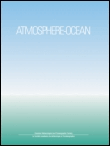
ATMOSPHERE-OCEAN
Illuminating the Dynamics of Our Planet's SystemsATMOSPHERE-OCEAN is a premier peer-reviewed journal published by Taylor & Francis Ltd, dedicated to advancing the fields of atmospheric science and oceanography. Since its inception in 1963, this journal has served as a crucial platform for researchers, professionals, and students, facilitating the dissemination of significant findings and innovative methodologies in understanding the complex interactions between the atmosphere and the ocean. With its journal ranking in the Q3 category for Atmospheric Science and Q2 for Oceanography as of 2023, along with its Scopus rankings, ATMOSPHERE-OCEAN maintains its relevance by addressing current topics such as climate change, hydrology, and ocean circulation patterns. For those seeking to contribute to or stay informed about the latest research in these critical fields, ATMOSPHERE-OCEAN is an invaluable resource that combines rigorous scholarship with practical implications for environmental management and policy.
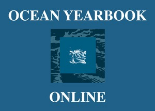
Ocean Yearbook
Navigating the Waters of Maritime Law and GovernanceOcean Yearbook, published by BRILL, is a leading academic journal in the field of maritime law and ocean governance, providing a comprehensive platform for researchers and practitioners in this vital area. With an ISSN of 0191-8575 and E-ISSN 2211-6001, this journal offers valuable insights and critical analyses on contemporary issues affecting the world's oceans, promoting interdisciplinary dialogue among scholars in law, environmental studies, and policy-making. Currently ranked in the Q2 quartile for Law, this journal is positioned among the top-tier publications, reflecting its commitment to academic excellence and relevance. Ocean Yearbook is essential reading for those looking to stay abreast of legal developments and emerging challenges in ocean governance, contributing significantly to policy discussions and academic scholarship worldwide. Its accessibility through subscription, combined with its ongoing commitment to high-quality research, makes it an indispensable resource for students, researchers, and professionals dedicated to understanding and protecting marine ecosystems.
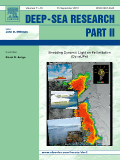
DEEP-SEA RESEARCH PART II-TOPICAL STUDIES IN OCEANOGRAPHY
Innovating Oceanography, One Study at a TimeDEEP-SEA RESEARCH PART II-TOPICAL STUDIES IN OCEANOGRAPHY is a leading journal in the field of oceanography, published by PERGAMON-ELSEVIER SCIENCE LTD. With an impressive ranking of Q1 in Oceanography and holding the 20th position out of 145 journals in the Earth and Planetary Sciences category, this journal provides a prominent platform for researchers and practitioners alike. Covering topical studies in oceanography since its inception in 1993, it continues to contribute significant insights into deep-sea research, enhancing our understanding of marine environments. Although the journal does not presently offer Open Access options, it remains a vital resource, appealing to students and professionals who seek to engage with innovative research and practical applications in the oceanographic community. The journal's ongoing commitment to excellence is evident as it plays a crucial role in advancing the field leading up to the present day and beyond.